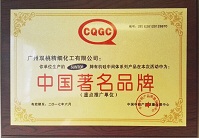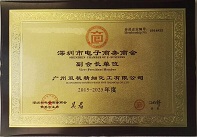
![]() E-mail: admin@gz-chemical.com
E-mail: admin@gz-chemical.com
Email us,best price and silane solutions for you!
Tel:+86 (20) 29035969

![]() E-mail: admin@gz-chemical.com
E-mail: admin@gz-chemical.com
Email us,best price and silane solutions for you!
Tel:+86 (20) 29035969


The big problem with plastics is that though they last for a very long time, most are thrown
away after only one use. Since plastics were invented in the 1950s, about 8,300m metric
tonnes (Mt) have been made, but over half (4,900 Mt) is already in landfill or has been lost to
the environment. In 2010 alone, an estimated 4.8 to 12.7 Mt went into the oceans.
Only a small proportion of the hundreds of types of plastics can be recycled by conventional
technology. But there are other things we can do to reuse plastics after they've served their
original purpose. My research, for example, focuses on chemical recycling, and I've been
looking into how food packaging can be used to create new materials like wires for electricity.
In chemical recycling you use the constituent elements to make new materials. All plastics are
made of carbon, hydrogen and sometimes oxygen. The amounts and arrangements of these
three elements make each plastic unique. As plastics are very pure and highly refined
chemicals, they can be broken down into these elements and then bonded in different
arrangements to make high value materials such as carbon nanotubes. In theory, the only side
products from doing this should be oxygen and hydrogen.
Carbon nanotubes are tiny molecules with incredible physical properties. Think of a piece of
chicken wire wrapped into a cylinder. This is what the structure of a carbon nanotube looks
like. When carbon is arranged like this it can conduct both heat and electricity. These two
different forms of energy are each very important to control and use in the right quantities,
depending on your needs.
For our new study, we took plastics—in particular black plastics, which are commonly used as
packaging for ready meals and fruit and vegetables in supermarkets, but can't be easily
recycled – and stripped the carbon from them, then built nanotube molecules from the bottom
up using the carbon atoms.
Guangzhou Double Peach Fine Chemical Co.,Ltd
Address: No 3401 Huangpu East Road, Huangpu District, Guangzhou, China
Tel:+86 (20) 29035969 Fax:+86(20)29035979
Tel/Wechat/Whatsapp:0086 13826126978 admin@gz-chemical.com